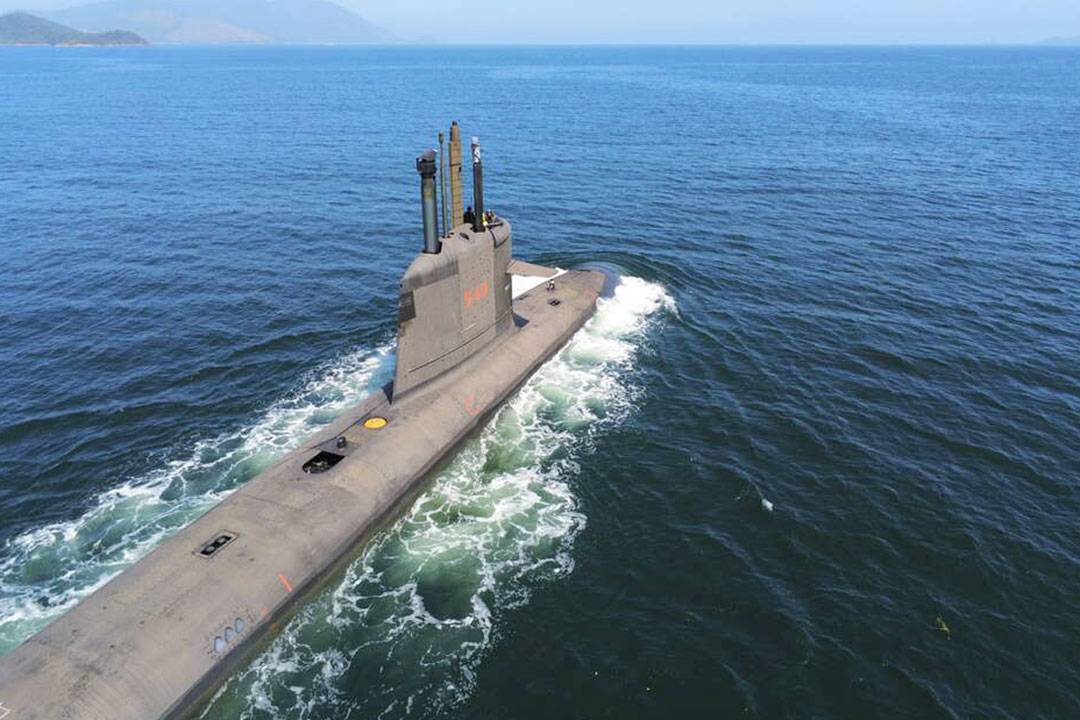Naval Group offers to supply Manila with attack submarines amid tensions

By Kyle Aristophere T. Atienza, Reporter
FRENCH warship maker Naval Group has set up an office near the Philippine capital as it seeks to supply diesel-electric attack submarines to the Southeast Asian nation amid worsening tensions with China.
The company is still waiting for the government’s decision on its submarine offer, Loic Beaurepaire, Naval Group corporate sales director for the Philippines, told a news briefing on Thursday.
“We understand the administration is working on the Horizon 3 investment plan, so we are now just waiting for the final decision to start the project,” he said, referring to the last phase of the Armed Forces of the Philippines’ modernization program.
The company made its first technical and financial offer to support the Philippine Navy in establishing its own submarine force in 2020. The offer is in line with the French government’s strategy in the Indo-Pacific region.
Naval Group has also expressed willingness to help the Philippine Navy in “designing and retooling” its submarine base in Subic, Olongapo City in northern Philippines.
Mr. Beaurepaire said the base has strategic advantages, “with its deep waters and localization, and access to a civilian shipyard, which will ensure availability of workforce to sustain the fleet.”
Security analysts said the Philippines should build a capable submarine force amid increasing tensions in the Indo-Pacific region, with China’s increasing assertiveness in the South China Sea, nuclear threats from North Korea and the conflict between China and self-ruled Taiwan.
“It is mostly needed amid the insecurity in the West Philippine Sea and the tense regional competition in the Indo-Pacific,” Chester B. Cabalza, founder of the Manila-based International Development and Security Cooperation, said in a Facebook Messenger chat.
He said the Philippines is the only middle power from Southeast Asia that does not have a submarine force.
“Having the submarines in the near future will boost the confidence of our navy and marines,” he said. “Manila will not be a laughing stock in Southeast Asia. Myanmar, which is not even an archipelagic and maritime power, now has six submarines.”
Mr. Cabalza said the Philippines has had plans to acquire submarines for its navy, but the government of ex-President Rodrigo R. Duterte instead bought surface warfighting vessels.
Aside from France, South Korea has also offered to supply the Philippines with submarines, he said.
Mr. Beaurepaire said the company would support the Philippine Navy in maintaining a submarine force.
Naval Group’s diesel electric Scorpene submarine was already evaluated by naval and defense officials in 2019, including it on its list of preferred submarine platforms. Each unit has 18 weapons on board, making it fit for rapid fire and salvo firing.
Mr. Beaurepaire said Naval Group would establish a Philippine submarine force training center that will be equipped with “all essential tools, including training simulators.” “The training will be conducted by Filipino instructors trained in France.”
The company will partner with the local private sector to “transfer our know-how and technology for maintenance operations.” It will also work on setting up a local supply chain.
Globally, 14 Scorpene-class submarines have been ordered by various countries including Chile, Malaysia, India and Brazil, according to the company.
‘BATTLEGROUNDS’
Mr. Beaurepaire said at least two submarines are needed to have a submarine force. Each unit takes five to six years to complete.
Submarines are one of the most complicated and expensive naval assets a country could have, said Don Mclain Gill, a geopolitical analyst who teaches foreign relations at De La Salle University in Manila.
“From an operational point of view, the number of submarines acquired and the effectiveness in operating them will determine their actual value,” he said via Messenger chat.
“If it is not put in the context of a proper strategy and operationalization, then such assets will merely be a symbol of naval force rather than an actual vessel for war,” he said.
It is only logical for Southeast Asian countries to try to acquire submarines given worsening maritime security issues in the region.
“Our mariners, sailors and future submariners of the Philippines should be prepared for hybrid naval warfare,” Mr. Cabalza said. “Underneath the seas are battlegrounds for maritime power.”



